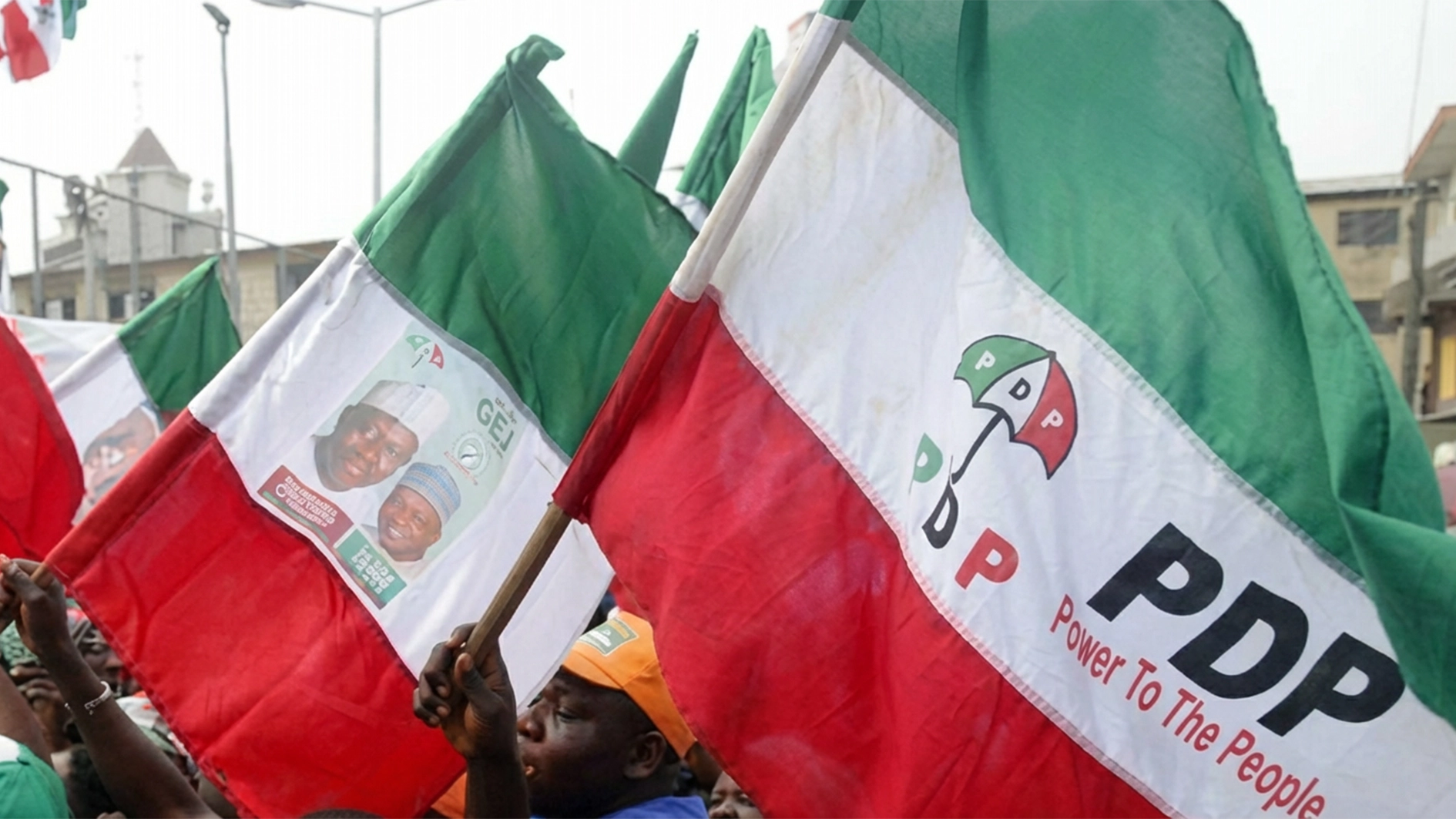 The sorry state of Nigeria’s electricity power supply cannot be more graphically illustrated than in the recent lamentations of the Organised Private Sector (OPS) and other stakeholders. Their faultless conclusion is that development and its indices would continue to be comatose for as long as the present hiccups subsist. In short, not only does the power situation continues to threaten the country’s political and economic stability, it again poses a strong reminder that the country’s power system remains a disaster waiting to happen, unless government summons the courage to address its problems head-on.
The sorry state of Nigeria’s electricity power supply cannot be more graphically illustrated than in the recent lamentations of the Organised Private Sector (OPS) and other stakeholders. Their faultless conclusion is that development and its indices would continue to be comatose for as long as the present hiccups subsist. In short, not only does the power situation continues to threaten the country’s political and economic stability, it again poses a strong reminder that the country’s power system remains a disaster waiting to happen, unless government summons the courage to address its problems head-on.
The urgent need for government to frontally tackle this issue of national disgrace cannot be over-emphasised. The OPS which is comprised of organisations such as the Manufacturers Association of Nigeria (MAN), Nigeria Association of Chambers of Commerce, Industry, Mines and Agriculture (NACCIMA), Nigeria Employers Consultative Association (NECA), Nigerian Association of Small and Medium Enterprises (NASME) and the Nigerian Association of Small Scale Industrialists (NASSI) is a critical stakeholder in the development of the Nigerian economy and needs to be taken seriously by the authorities.
In this instance, the OPS had indicated that the spike in the cost of doing business in Nigeria and the consequent upward spiral effects on job losses and unemployment are largely caused by inadequate electricity supply, high electricity tariffs and exorbitant cost of self-generated electricity. It is difficult to disagree with the group in this regard. In fact, the current fluctuating fortunes of the Nigerian economy have been proven to be largely due to the country’s inefficient power sector. A major casualty of this power sector inefficiency is the industrial sector and most critically, the small and medium scale enterprises (SMEs).
Nigeria’s power sector has gone through twists and turns over the years. It is a very familiar albatross that has refused to go away and subjecting citizens and industries to regression. Yet, tariffs are increasing and estimated billings remain outrageous. The problems of the sector have become intractable, or so it seems. Nigerians have been severally bedevilled with different excuses for poor performance by the authorities – right from the time of Chief Bola Ige, of blessed memory to Senator Danjuma Goje to Professor Barth Nnaji to Professor Chinedu Nebo and finally to the immediate past Minster in charge of that sector, Mr. Babatunde Fashola. Each of the ministers who have been saddled with the responsibility of addressing the problems of power in Nigeria have come up with plans and assurances on how the problem can be solved to aid the growth of the Nigerian economy since it has been generally acknowledged that except the energy problem is addressed, the Nigerian economy will continue to falter and thus fail to generate the number of jobs needed to engage the growing youth population.
The assertion by the OPS indicates that electricity outages now average 10 hours per day with electricity expenses constituting about 40 per cent of total cost of production for industry and that for self-generated electricity, an average of N119 billion was expended in 2019. Indeed power supply in the past many years has become a huge challenge for manufacturers, the industrial sector and the Nigerian economy at large. Unless this issue is drastically addressed, the country would just be going round in circles in its quest for meaningful economic development. Even statistics from the World Bank corroborates this sorry state of the sector. Its estimation indicates that only 56.5 per cent of Nigeria’s population have access to electricity. This is also tallies with a USAID report that on most days, the power sector in Nigeria is able to deliver only about 4,000 megawatts (MW) to the entire country. In fact, for most periods, the country recorded a daily electricity dispatch of less than 4,000 MW, particularly during the now frequent collapse of the electricity transmission system which has made life continuously unbearable for most Nigerians. Actual dispatch figure has fallen to levels below 3,000 MW at various times. System collapse has been occurring in the power sector overtime and in April 2019, the power generation and transmission system collapsed leading to serious power outages across parts of the country with a huge drop recorded in power supply from about 4,000 megawatts to about 2,039 megawatts.
In view of these developments, it is worrisome that the country is dissipating its energy in pursuing programmes to sell “unused” electricity to Niger, Togo, Benin and Burkina Faso, through a planned $570 million Northcore Power Transmission Line. The plan which suggests that as much as 2,000 MW of electricity, said to be unutilised daily across the power generating companies, is to be exported to these countries. The question to be asked here is whether this generated energy from the generating companies is not needed in Nigeria. Why is the country planning to export a commodity that is inadequate at home? Why is government not focusing its energy in enhancing the transmission capability of the grid to transmit power to the distribution companies so that the average household and industry in the country can have enhanced access to power for its use? In-as-much as some little portion of electrical energy can be reserved for these countries, in the spirit of African brotherhood and good neighbourliness, the popular adage that charity begins at home should not be discountenanced in the management of activities in the power sector. The Buhari administration should make good its campaign promise to revamp the power sector and ensure that service to Nigerians is made to have pre-eminence over that meant for the country’s neighbours.






